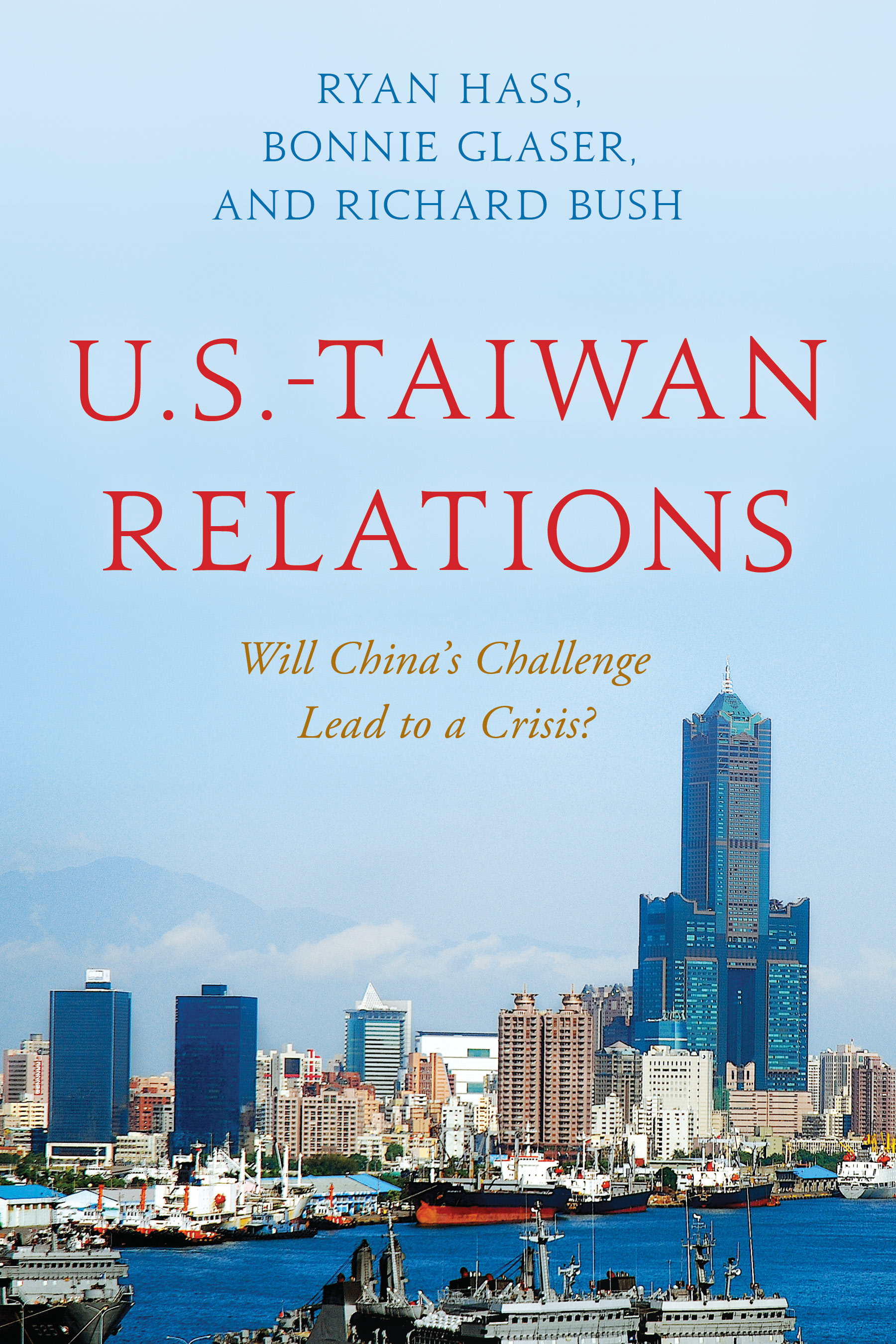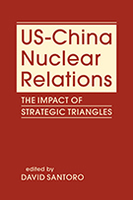美国务院“二把手”将退休 人事调整令外界浮想联翩
- 2023/05/26
- 来源:日本头条
彭博社25日报道称,美国国务院“二把手”,分管亚太事务的副助理国务卿兼“中国事务协调办公室”(非正式名称为“中国组”)主管华自强(Rick Waters)将卸任。拜登政府负责中国问题的高级官员近期出现不少变动,华自强只是其中一例。路透社认为,相关人事变动可能与美国政府内部在对华政策上存在分歧有关,而这些分歧已经影响“中国组”的运行。
“中国组”士气低迷
综合北京环球网、广州《羊城晚报》报道,美国国务院发言人称,华自强将于6月23日卸任,该发言人没有透露华自强离职的原因。知情人士称,华自强在当地时间24日早些时候的一次员工会议上宣布了他辞职的意向。
“德国之声”25日报道称,华自强宣布将离职是处理美中关系的官员最近一系列变动中的最新一例,今年2月,白宫国家安全委员会宣布,负责中国事务的高级官员罗森伯格离职。本月早些时候,美国国务院“二号人物”舍曼宣布将于6月底退休,她的继任者人选尚未公布。舍曼曾领导美国对中国和俄罗斯的外交事务。
“对华政策班子继续大调整”,“美国之音”25日称,华自强在美国国务院担任副助理国务卿负责中国事务已两年,是拜登政府内较倾向与中国往来的官员。华自强今年3月曾低调访华,被认为是为布林肯访华“铺路”。路透社获得的美国国务院内部信息与邮件显示,“气球事件”发生后,美国推迟进一步对华制裁,希望降低双方关系恶化的程度。当时华自强在内部邮件中称:“国务卿的指示是暂缓跟气球无关的行动,这样我们就可以专注于对称和协调的反应。我们可以过几周再考虑其他做法。”
路透社提到,对华新制裁的延迟令一些美国官员感到震惊,并显示出美国政府在对华政策上存在分歧:一部分人主张对中国采取更强硬行动;另一部分人则主张采取更克制态度。一些消息人士表示,该分歧已经影响“中国组”的运行,导致该小组士气低迷、人员空缺率高达40%。当时有知情人士透露,最近,该小组还有一些工作人员要求离职。
南京大学国际关系学院执行院长朱锋25日表示,华盛顿近期的人事调整说明,拜登政府内部在应该执行怎样的对华政策以及如何协调平衡美国国内日趋多元化的对华声音等方面,面临新的难题和政治压力。与此同时,也反映出美国一味强硬打压中国、试图把“新冷战”强加给中美关系的政策,正引发美国国内和国际社会的更多争论。
“关键是如何重建信任”
在美国对华政策班子出现调整之际,一些政客仍不遗余力地抹黑中国,并粗暴干涉中国内政。据美联社25日报道,美国众议院下辖的“中国问题特别委员会”24日表决通过“涉疆”“涉台”两份提案,施压国会对中国采取行动。美国国家安全局24日援引微软公司的报告声称,近期一个中国黑客组织“针对美国关键基础设施发起网络攻击”。英国、澳大利亚、加拿大、新西兰等国相关机构也发布了类似报告。
中国外交部发言人毛宁25日在例行记者会上表示,很明显,这是美国出于地缘政治目的,发动“五眼联盟”国家采取的集体虚假信息行动。众所周知,“五眼联盟”是世界上最大的情报组织,美国国家安全局是世界上最大的黑客组织,他们联手发布虚假信息报告,本身就很讽刺。
“中美关系解冻,拜登政府可以做哪些工作?”美国布鲁金斯学会高级研究员、中国问题专家何瑞恩23日撰文称,首先,华盛顿可以优先考虑与中国的直接、私下外交,“私人信件、电话、国家安全顾问之间的安静谈话、低调的访问以及通过大使馆进行的工作,将为美中关系取得进展带来更大的前景”。其次,美国应暂停与北京就处理两国关系的危机管理机制和原则进行谈判,在目前的关系气氛下,推动这些话题将会加剧而不是降低风险。何瑞恩称,美国越是完全依赖威胁和惩罚来与中国打交道,并从生存的角度来构建竞争,美国的盟友和伙伴就越可能“踩刹车”,以防止被推入与最大贸易伙伴的正面对抗,美国的合作伙伴中很少有国家对加入一个反华集团感兴趣。
“关键是如何重建信任”,美国智库史汀生中心资深研究员罗伯特·曼宁建议美中“以互惠措施为基础,一小步一小步、一块砖一块砖地,建立某种程度的信任”。比如双方重新开放被关闭的领事馆、放宽学生和教师的签证、开展贸易技术谈判以及为人工智能等新兴科技制定规则等。
前白宫官员笑称 美国防部争取预算 只要报告有「中国」即可
前白宫国安会中国事务主任何瑞恩(Ryan Hass)谈到美国面对中国崛起的恐惧时说,现在美国国防部流传一个笑话:如果需要预算,只要报告的标题有「中国」,再加上「人工智能」之类的词,保证能要得到钱。
 前白宫国安会中国事务主任、布鲁金斯学会高级研究员何瑞恩(Ryan Hass)
前白宫国安会中国事务主任、布鲁金斯学会高级研究员何瑞恩(Ryan Hass)
「全球台湾研究中心」(GTI)日前为何瑞恩去年出版的新书「更犟:在竞争性相互依存时代调整美国对华战略」举行的视讯发表会。
根据《中评网》报导,布鲁金斯学会高级研究员何瑞恩认为,美国面对中国的崛起,需要自信,而不是恐惧,然而恐惧感郄是现在华盛顿讨论中国大陆问题时的主旋律。因此不得不说些可怕或浮夸的东西,其动机就是贩卖恐惧。
何瑞恩不以为然地认为,美国目前在美中关系中仍是优势明显的更犟大力量。美国要有自信,採取主动行动。他提出「竞争性相互依存(competitive interdependence)」的概念。
他解释,美中关系是根本性竞争,犟调美国必须与朋友一起对付中国的雄心,接受美中唡国谁都无法改变对方。但是在互相依存的时代,唡个大国打交道,一方击打另一方,在过程中很难不击中自己。一个典型的例子就是川普发动的贸易战。他说:「这是一个巨大的失败」。
他犟调,贸易战没能改变中国经济体系,没能打击中国经济增长,没能减少美国贸易赤字,没能给美国经济和消费者带来好处。美国必须接受渐进式的进展,而外交是取得进展的艺术!美国处理对中国的关系应採取务实的手法。
专家呼吁美国接受现实:中国是独一无二大国,中美应建立共存战略
布鲁金斯学会高级研究员、中国问题专家何瑞恩在中美关系研讨会上表示,中国是独一无二的大国,中国不会投降,美国应该放弃幻想,对华脱钩也不会实现。
布鲁金斯学会是美国著名智库,是华盛顿特区学界的主流智库之一,创立于1927年,对美国国策有着独特的影响力。但布鲁金斯学会的研究成果现在越来越不被美国政界认同。反而是哈德逊研究所这类组织对美国政界影响巨大。
美国为何会出现这种转变,和美国社会如今的分裂有很大关系。对于美国政客来说,国家利益只是其次,最重要的是选票。而美国社会出现的一系列治理问题想要解决,可能需要几年甚至几十年持之以恒的投入才能缓解。但想捞选票,只需要迎合选民就可以了。
但疏于管理,精于煽动,让美国社会的各个群体愈发极端。本来只是想要产业建设和社会稳定的中部居民,越来越倾向于攻击他国产业工人,提倡自由化和平权的美国人开始攻击保守派。眼看社会矛盾越来越激烈,美国找到了一个绝好的替罪羊-中国。
美国和中国制度路线不一样。作为美国人的梦魇,苏联给美国人的影响十分深远,现在苏联早已解体,但苏联影响下的各个国家,依然被美国视作敌人,妖魔化中国自然带着强烈的意识形态色彩。
中国的经济发展也引起了美国的恐惧。在世界经济总量第一的位置上呆了太久,只要有其他国家有可能超过美国,美国就会出手打压。日本德国英国曾经都是美国针对的对象。中国作为第二大经济体,被美国盯上也是可以预见的。
而纵观中美关系的演变,美国的态度从未改变,那就是自以为是。新中国建国之前,美国将中国作为廉价商品的倾销地。新中国成立之后,美国又将中国当成威胁,经济封锁军事威胁,而中美关系缓和后,美国也并未将中国当成一个平等的合作伙伴,只是将中国作为一个廉价劳动力市场。
在中国快速发展后,美国又将中国当成了战略威胁,使出浑身解数想要打压中国。中国崩溃论就是在这个时期产生的。章家敦就是靠这个理论声名鹊起的。美国一直期待中国崩溃,然后冲进中国抢夺资源。
而美国之所以要对华脱钩,正是基于该理论。特朗普和班农等人认为,中国十分脆弱,美国只要对中国开打贸易战,中国就会迅速崩溃,然后中国就会答应美国的任何条件。
但事实告诉美国,中国的韧性远超美国的预料。但特朗普掀起的贸易战,让中美之间的裂痕更加深。何瑞恩就强调,中美之间,虽然依然会在经济上保持深度的合作,但经济的合作不再成为中美关系的稳定器,未来中美关系将十分微妙。
中美经济脱钩的底层逻辑,依然是美国优先。但中美合作并不是美国的施舍造成的结果,而是全球化分工的结果。在冷战之前,美国与苏联建立了各自的经济阵营。但在苏联解体后,美国主导了全球化。中国有着较为完备的生产体系,庞大且接受了教育的劳动力,还有巨大的市场,产业转移的不仅是美国,日韩等国都把不少产业转移到了中国,不是为了建设,而是为了获取更多利润。
现在的美国政客宣传中国的繁荣是美国的功劳,美国跨国企业在中国获得的利润和全世界享受中国制造的廉价商品却被无视,中国的繁荣靠的是中国人民自己的勤劳,而不是美国的施舍。而美国离开了中国,只会让自己陷入危机中,毕竟美国已经没有能力重振制造业实力,只能靠金融资本撒钱,但美国现在早已债台高筑,国会预算都已经吃紧。
而美国现在却在以和中国脱钩为由,收割其他国家的制造业。推出“削减通胀法案”,吸血欧洲,建立芯片四方联盟,逼迫台积电和三星在美国建厂,自己的企业却仍然在中国赚取利润,在中国的投资不减反增。
这类看似脱钩实则诈骗的做法,自然会受到全世界的反对。但美国并不会有所收敛。不再选择解决国内的问题,而是选择转移矛盾,吸血盟友来补贴自己,只能延缓矛盾的爆发。但美国政客已经管不了那么多了,毕竟度过这几年,美国再水深火热,都和捞够了的自己没有关系。
拜登现在需要的就是选票,让美国度过艰难时刻。虽然上任之初就发表演讲说要做所有人的总统,试图弥合矛盾,但两年来,美国的分裂不但没有缓解,反而愈演愈烈。
这种分裂已经体现在国际领域。美欧,美俄,中美之间的矛盾已经日益公开化,美国逐渐在世界变成孤家寡人,不少国家已经公开对美国表示不满,沙特等传统盟友已经不再遵从美国的意愿。更别提中俄,现在已经不再对美国抱有幻想,做好了各种准备。
想要美国认清现实,尊重中国,接受中美共存的现实,不能希望美国自己,而是要中国做好准备,光靠宣传合作共赢是不够的,还要让美国承担胡作非为的后果,让美国知道,中国不是美国依靠旁门左道就能打倒的,美国霸权的基础是美国的国力,而中美之间良性竞争无疑对双方都有好处,但美国一意孤行非要打压中国,只会让美国霸权加速衰落。
美国有不少人已经意识到这一危机,霍普金斯学会早已警告中美之间的冲突对美国没有好处,但现在的美国政府对华政策并未有所转变,反而在变本加厉,美国现在说一套做一套,中美关系还将经历一段颠簸期。
How Biden could "thaw" US relations with China
The year 2023 was supposed to provide a period for the stabilization of U.S.-China relations. The political calendar for the year was fortuitous, with no major political event in China, no major elections in the United States or Taiwan, and plans for China’s president to visit the United States in the fall of 2023. President Joe Biden and President Xi Jinping had set the tone for the year ahead in a November 2022 meeting, where they instructed their teams to manage risks and maintain open lines of communication. Such plans were soon blown off course, though, by a Chinese surveillance balloon that violated American airspace in late January and compelled Secretary of State Antony Blinken to postpone his planned trip to Beijing.
Senior Fellow - Foreign Policy, Center for East Asia Policy Studies, John L. Thornton China Center
The Michael H. Armacost Chair
Chen-Fu and Cecilia Yen Koo Chair in Taiwan Studies
Nonresident Fellow, Paul Tsai China Center, Yale Law School
In the months since the balloon incident, the U.S.-China relationship has resembled an airplane steadily losing altitude. But instead of working together to pull up the nose of the plane to avoid a crash, U.S. and Chinese officials have been bickering in the cockpit over who is to blame for the downward trajectory of relations.
During this period, American officials registered public frustration (with justifiable cause) that they did not have willing counterparts in Beijing to work with to stabilize the bilateral relationship. Chinese officials similarly grumbled that the United States was implacably hostile and bent on suppressing China’s rise. They argued that there was nothing to be gained by dealing directly with American counterparts because American animosity was fueled by insecurity over China’s rise, not by specific Chinese actions of concern. Xi seemingly endorsed this attitude, complaining publicly that the United States and its partners were undermining China’s development by pursuing “all-around containment, encirclement and suppression of China.”
In recent days, however, there are indications that both countries might be working their way out of their bitter moods toward each other. Both sides have resumed contact at senior levels and signaled plans to further strengthen bilateral exchanges in the weeks ahead. During a press conference at the Group of Seven summit, Biden predicted a near-term “thaw” in relations with China.
If it occurs, such a thaw likely will be driven by mutual self-interest. Biden has consistently emphasized the need to lower risk in the U.S.-China relationship and compete responsibly without veering into conflict. Xi faces mounting challenges, including but not limited to softening economic growth, rising youth unemployment, mounting international wariness of China’s political economy, and simultaneous strains between China and virtually every developed economy. Washington and Beijing also share an interest in laying the groundwork for productive leader-level exchanges when Biden and Xi are together at the Group of 20 in India in September and the Asia-Pacific Economic Cooperation leaders meeting in San Francisco in November.
Reflecting the criticality of the coming period between now and upcoming leader-level engagements in the fall, Kurt Campbell, the U.S. National Security Council coordinator for Indo-Pacific affairs, recently noted, “I think you will see in the coming months whether it’s going to be possible to reestablish effective, predictable, constructive diplomacy between the United States and China.” Recognizing that China also will get a vote in the conduct of relations, there are several adjustments available to the United States during this coming period that could raise the likelihood of pushing the relationship in the direction of becoming more “effective, predictable, and constructive.”
First, Washington can reprioritize direct, private diplomacy with China. Public spectacles, such as the March 2021 meeting between U.S. and Chinese diplomats in Anchorage or the more recent dust-up between Blinken and Politburo member Wang Yi on the margins of the Munich Security Conference, are counterproductive. They limit America’s ability to influence how China pursues its interests, shake the confidence of America’s allies in the soundness of American strategy, and poison personal relations between participants. Pushing Xi publicly will generate the opposite of the intended effect. Private letters, phone calls, quiet conversations among national security advisors, drama-free visits, and work through embassies will hold greater prospects of making progress on American priorities with China.
Second, the United States should pause efforts with Beijing to negotiate crisis management mechanisms and principles for the conduct of the relationship. At a tactical level, there is no scope for progress on these issues in the current climate of relations. Pushing these topics now will be more aggravating than risk-reducing.
At a more strategic level, there is a real risk that pursuing this line of discussion will lead U.S. officials into a dead end with a poison trap. Every Chinese official with whom I have spoken about guardrails and principles for the relationship equates such an understanding with acceptance of China’s “core interests,” especially in relation to Taiwan. Allowing any perception to emerge that the United States is pursuing guardrails with Beijing that involve negotiation over America’s approach to cross-Strait issues would do more harm than benefit.
Related Books
 U.S.-Taiwan Relations By Ryan Hass, Bonnie Glaser, and Richard Bush
U.S.-Taiwan Relations By Ryan Hass, Bonnie Glaser, and Richard Bush
 US-China Nuclear Relations: The Impact of Strategic Triangles
US-China Nuclear Relations: The Impact of Strategic Triangles
Contributions by Robert Einhorn
China 2049 by David Dollar, Yiping Huang, and Yang Yao
If U.S. officials want to prioritize risk reduction with China, then they should instead table concrete proposals around specific issues. For example, they could propose a mutual acceptance to refrain from future anti-satellite tests that create orbital debris. They could negotiate understandings around limits on the uses of artificial intelligence-enabled weapons systems. These would be more productive avenues to reduce risk than creating an opening for China to press the United States to modify its approach to Taiwan as a prerequisite for progress on broader principles to guide the relationship.
Third, Washington needs to get back into the business of channeling Xi’s ambitions to constructive ends. Xi wants to enjoy dignity and respect on the world stage. He wants to be viewed as a global leader and a peacemaker. Washington should look for ways to harness these ambitions to support its own priorities. For example, rather than pouring cold water on Beijing’s inability to mediate Russia’s war of aggression against Ukraine, the United States and its global partners should look for discrete areas to urge China to take on greater responsibility for lowering tensions and relieving suffering. Washington could push Beijing, for example, to take the lead in pressuring Russia to keep grain routes open through the Black Sea for the sake of global food security. Washington and its partners could encourage Beijing to take the lead in setting expectations in Moscow and Kyiv that attacks against nuclear power plants such as Zaporizhzhia would constitute nuclear terrorism and provoke a harsh international response. Beijing also could be urged to organize international efforts to pool funding for Ukraine’s $411 billion reconstruction bill after the war concludes.
China’s leaders also want to be seen as global leaders on climate issues, despite also being the world’s largest emitter of carbon dioxide. Washington should leverage Xi’s interest in being perceived positively on climate issues to press China more aggressively to curb domestic emissions and invest more in accelerating the renewable energy transition around the world. Ultimately, the renewable energy transition will not succeed without massive Chinese contributions. China should be incentivized to step up on this issue by being assured that America and others will recognize and welcome its contributions.
At the same time, Washington is in a stronger position to address challenges posed by China working with its partners than it is alone. Coalitional strength is critical for influencing China’s choices. To tighten coordination with its partners, Washington needs to credibly assure them that its strategy is designed to nudge Chinese behavior in less predatory, hostile, repressive, and mercantilist directions, rather than being designed to halt China’s rise or overthrow the Chinese Communist Party.
The more the United States relies exclusively on threats and punishments for dealing with China and frames competition in existential terms, the more that America’s allies and partners will hit the brakes to guard against being pushed into a head-on confrontation with their largest trading partner. Few, if any, of America’s partners are interested in enlisting in an anti-China bloc. To assuage such anxieties, Washington needs to be prepared to commend Chinese contributions to global challenges, even as it also pushes back against Chinese repression at home, unfair economic practices, and bullying abroad.
Biden also will need to engage directly to elicit a public statement from Xi of the latter’s interest in moderating relations. This would provide a necessary signal to China’s party and government apparatus that Xi wants to move forward in managing U.S.-China tensions and that they will need to as well.
Even as it makes these adjustments, Washington will need to remain firm and tolerant of friction with Beijing. There will continue to be flare-ups and Chinese challenges to American interests that will require resolute American responses. The road to more resilient and productive U.S.-China relations will not follow a straight line; it will have ups and downs and tests of wills.
Ultimately, any progress toward a more functional and predictable U.S.-China relationship will require political courage and determined efforts from both sides. Neither side can deliver greater stability on its own. This may be too much to expect of leaders in Beijing and Washington in current circumstances. The path of least political resistance in both capitals is to continue blaming the other side for the sustained slide in relations and for mounting problems at home. While such an approach might be expedient in the near-term for diverting anger abroad, it will not improve the health, safety, and prosperity of people in either country over the longer term. Ultimately, these are the metrics upon which leaders are measured by history.
Domestic power reshuffles in 2022 and US-Taiwan-China relations
Fatalism is not an option for addressing China-Russia relations
A roadmap for US-China relations in 2023
A how-to guide for managing the end of the post-Cold War era. Read all the Order from Chaos content »
